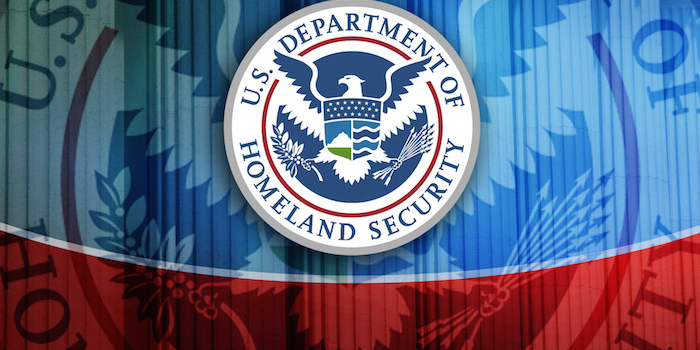
| College | City | State |
|---|---|---|
| American Public University | Charles Town | West Virginia |
| Angelo State University | San Angelo | Texas |
| Bellevue University | Bellevue | Nebraska |
| Colorado Technical University | Colorado Springs | Colorado |
| Endicott College | Beverly | Massachusetts |
| Long Island University | Brooklyn | New York |
| Northcentral University | San Digeo | California |
| Park University | Parkville | Missouri |
| Southern New Hampshire University | Manchester | New Hampshire |
| University of Maryland | Adelphi | Maryland |
| University of Massachusetts-Lowell | Lowell | Massachusetts |
| Wilmington University | New Castle | Delaware |
The U.S. federal workforce grew from 1.8 million federal civilian employees during the Clinton administration to 2.1 million in 2016. This is an increase of nearly 17%. One of the largest departments of the federal government is the Department of Homeland Security (DHS). The Department employs more than 240,000 employees working in jobs from aviation border security and emergency response to cybersecurity and chemical inspections.
DHS Growth and Salaries
Though the DHS is already one of the largest departments of the federal government, the Department has hired more than 71,650 new employees between 2013 and 2017 alone—a near 10% increase in employment in just four years. Salaries have surged as well. According to the Office of Personnel Management (OPM), in 2013 the average annual federal salary was just over $79,000. In 2014, it was $84,153—approximately 50% more than the average private sector employee). In 2015, the average federal salary was $86,365.
Federal workers’ wages or salaries are based on their job classification, grade level, geographic location, and length of employment. For example, according to the Bureau of Labor Statistics (BLS), “a GS-7 job pays nearly $3,000 more in Boston, Massachusetts, than it does in Decatur, Alabama.” In addition to excellent salaries, federal employees receive benefits such as subsidized health insurance, life insurance, retirement plans, student loan repayment, tuition reimbursement, paid federal holidays, flexible work schedules, employee assistance programs, health and wellness programs, transportation subsidies, training and development, and telework.
In addition, workers are eligible for “step increases” every one to three years. Management and executive positions fall on the higher end of the pay scale, and typically hover around $100,000 or more annually as you move up the ladder. In the step system, the highest salary listed with the OPM for 2017 is $134,776 annually.
The MBA in Homeland Security
So, what does all of this mean for business students who may be interested in a career in homeland security? Stability, growth, and the potential to earn a six-figure salary. And that’s not all. Most people working in homeland security enter the field because they want to play a part in helping keep America safe. For them, the considerable pay and benefits are just a bonus.
Thanks to growth in the homeland security sector and the demand for qualified employees, colleges and universities have taken notice. Today’s graduate students have more degree options than ever before. There’s the Master of Professional Studies in Homeland Security (offered at Penn State), a Master in Emergency Management & Homeland Security (offered at Arizona State University), and an MBA in Homeland Security (offered at Northcentral University).
These and many other master’s degree programs are now offered at number of schools across the U.S. Though the MS is the most popular option today, those seeking leadership positions should consider the MBA or even a dual MS/MBA.
According to Northcentral University in Scottsdale, Arizona, an MBA with a Specialization in Homeland Security “prepares senior leaders of public administration, law enforcement, public safety, and emergency medical care and disaster preparedness agencies for executive leadership positions in the field of homeland security.” Students may choose from courses that cover terrorism, strategy, intelligence, emergency management, and critical infrastructure security issues. Sample courses include Homeland Security Transportation, International Crime and Terrorism, Homeland Security Risk Management, and Maritime Terrorism.
Schools that Offer an Online MBA in Homeland Security or MBA + Certificate
When searching for programs, target schools that have a variety of related programs. If the school does not yet have a formal homeland security specialization, you have options. Most schools will offer the opportunity to customize your focus area by choosing electives that suit your goals. Below are some top schools that offer an MBA in Homeland Security, certificate or related concentration.
- American Public University, MBA with a Concentration in Homeland Security
- Angelo State University, MBA with Certificates in Cybersecurity, Emergency Management and Terrorism and Counter-Terrorism Studies
- Bellevue University, Bellevue, Nebraska, MBA with Concentrations in Cybersecurity, Global Economic Threat Environment and Information Security Management
- Colorado Technical University, Doctor of Management in Homeland Security
- Endicott College, MBA with a Cybersecurity Certificate, Master's in Homeland Security, MBA/MS in Homeland Security
- Long Island University, MBA (hybrid) with an Advanced Certificate in Homeland Security Management (online)
- Northcentral University, MBA in Homeland Security
- Park University, MBA with a Homeland Security Emphasis
- Southern New Hampshire University, MBA with a Justice Studies: Terrorism and Homeland Security Certificate
- University of Maryland, MBA with a Certificate in Security Management
- University of Massachusetts-Lowell, MBA with Certificates in Security Management and Homeland Security and Security Studies
- Wilmington University, MBA with a Homeland Security Specialization
The DHS is eager to recruit recent graduates, so today’s Homeland Security MBAs can expect plenty of job opportunities. The official website contains the following call for graduates:
Just completed college, graduate school or military service and looking for a great career? The Department of Homeland Security is hiring! DHS offers talented new professionals, flexible work schedules, student loan repayment and tuition reimbursement programs, and more in a generous benefits package.
Visit the DHS website for job postings.
Considering an Online MBA? Use our interactive map to find information on schools and colleges offering Online MBA programs in your state and across the U.S.
Sources
"Business Administration, Homeland Security Specialization, MBA." School of Business and Technology Management. Northcentral University, 2017. Web. 22 Apr. 2017.
DHS.gov. U.S. Department of Homeland Security (DHS), 2017. Web. 22 Apr. 2017.
"Federal Employees Earn 50% More Than The Private Workforce." The Huffington Post. TheHuffingtonPost.com, 21 Dec. 2015. Web. 22 Apr. 2017.
"Has the US Federal Workforce Really 'dramatically Increased'?" BBC News. BBC, 24 Jan. 2017. Web. 22 Apr. 2017.
"Pay & Leave, Salaries & Wages." OPM.gov. United States Office of Personnel Management, 2017. Web. 22 Apr. 2017.
Vilorio, Dennis. "Working for the Federal Government: Part 1: Career Outlook." U.S. Bureau of Labor Statistics. U.S. Bureau of Labor Statistics, Sept. 2014. Web. 22 Apr. 2017.





